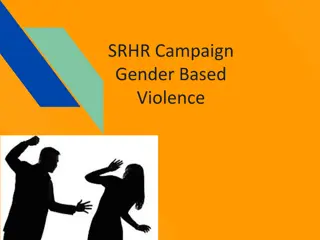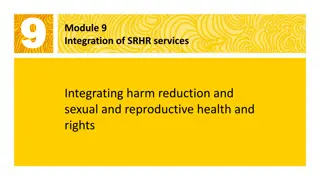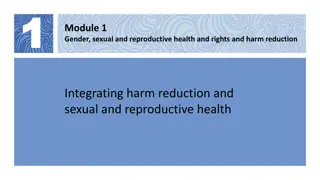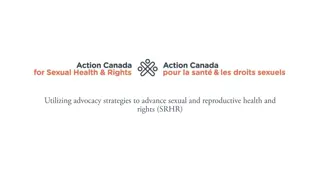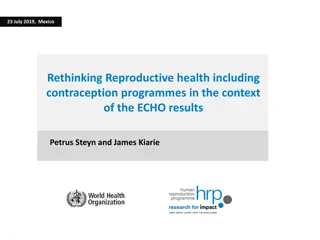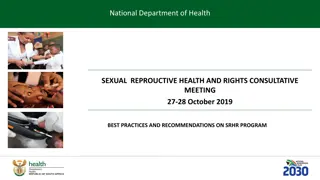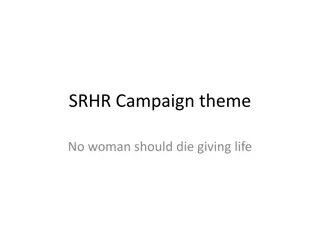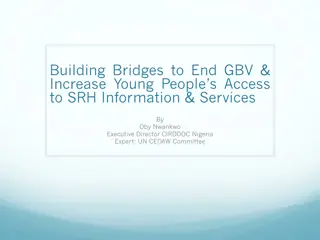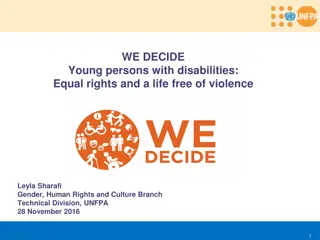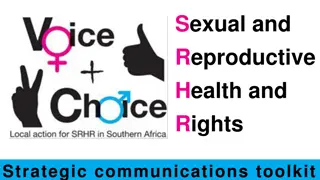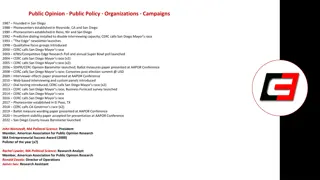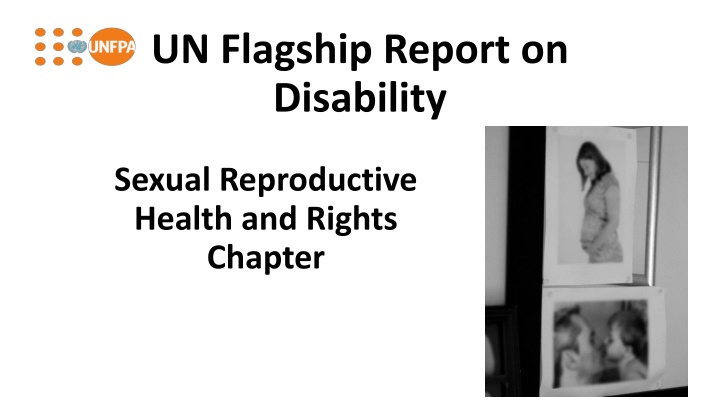
Addressing Sexual and Reproductive Health Rights for Persons with Disabilities
Explore the UN Flagship Report on Disability focusing on sexual and reproductive health rights for persons with disabilities. Learn about the challenges faced, guidelines for action, international legislation, and the overall situation of persons experiencing disabilities in this comprehensive report.
Download Presentation

Please find below an Image/Link to download the presentation.
The content on the website is provided AS IS for your information and personal use only. It may not be sold, licensed, or shared on other websites without obtaining consent from the author. If you encounter any issues during the download, it is possible that the publisher has removed the file from their server.
You are allowed to download the files provided on this website for personal or commercial use, subject to the condition that they are used lawfully. All files are the property of their respective owners.
The content on the website is provided AS IS for your information and personal use only. It may not be sold, licensed, or shared on other websites without obtaining consent from the author.
E N D
Presentation Transcript
UN Flagship Report on Disability Sexual Reproductive Health and Rights Chapter
Introduction-Why SRHR? Unplanned pregnancies, sexually transmitted infections(STIs) including HIV/AIDS, gender-based violence, to which many persons with disabilities are exposed, are a major threat to their personal development, health and life quality A growing body of data now confirms the fact that that persons with disabilities are as sexually active as their non-disabled peers and have similar needs for SRH services, and often have greater needs at the point of care. Persons with disabilities are up to 3 times more likely to experience physical, sexual, and emotional violence
Cross-Cutting Guidelines for Action 1. Creating an enabling legislative and policy environment 2. Programme development, implementation, and monitoring 3. Designing accessible facilities GBV Services SRHR Services 1. GBV prevention services 2. Health services for GBV victims/survivors with disabilities 3. Justice and policing services 4. Social Services protection services 5. Social Services rehabilitation services 6. GBV services for women and young people with disabilities in institutional settings 7. Adolescent- and youth-friendly GBV services 1. Contraceptive information, goods, and services 2. Maternal and newborn health services 3. Comprehensive Sexuality Education (CSE) and information 4. Access to safe abortion services and post- abortion care 5. Information, testing, and treatment services for sexually transmitted infections (STIs), including HIV 6. Access to other women s health information and services 7. Adolescent- and youth-friendly SRH services
International legislation for persons with disabilities on sexual and reproductive health Convention on the Rights of Persons with Disabilities (CPRD) International Conference on Population and Development Programme of Action (ICPD PoA) The Convention on the Elimination of All Forms of Discrimination Against Women (CEDAW)
Situation of persons experiencing disability: status and trends Structural/environmental barriers to sexual and reproductive health Attitudinal barriers to sexual and reproductive health Increased vulnerability to GBV, harmful practices Unable to exercise full autonomy Lack of data
Programme case studies/UN activities WE DECIDE Global Programme - Young Persons with Disabilities: Equal Rights and a Life free of Violence (UNFPA) W-DARE project (Women with Disability taking Action on Reproductive and sexual health) , sign language on SRHR (Kenya) UNPRPD, WHO, UNICEF, UN Women
Key Recommendations Ensure access and inclusion in SRH services, including services for GBV survivors, eliminate physical and attitudinal barriers Train policymakers, programme administrators and service providers in disability inclusion Strengthen disaggregated data collection and research M&E framework, budget allocation


